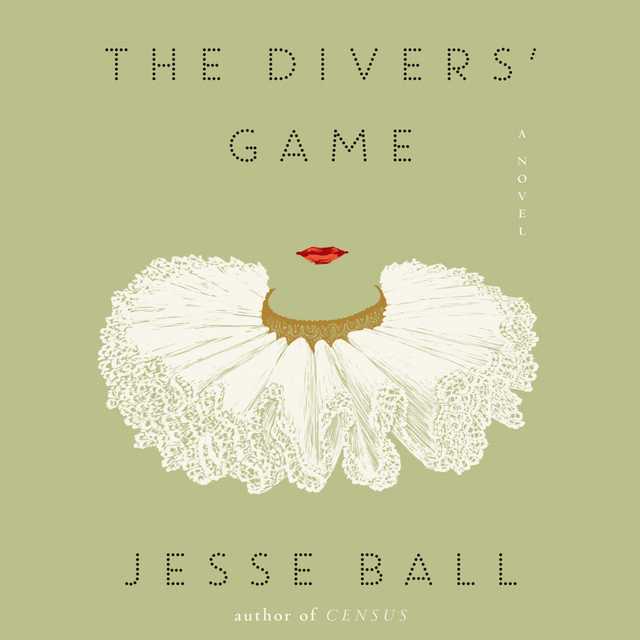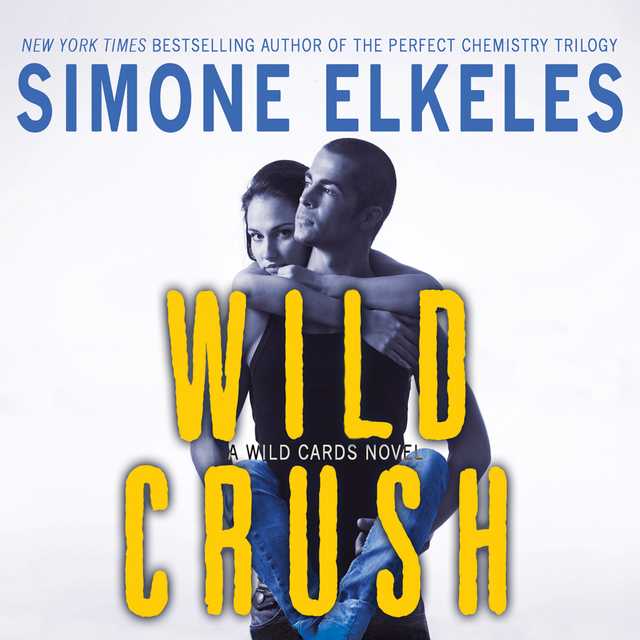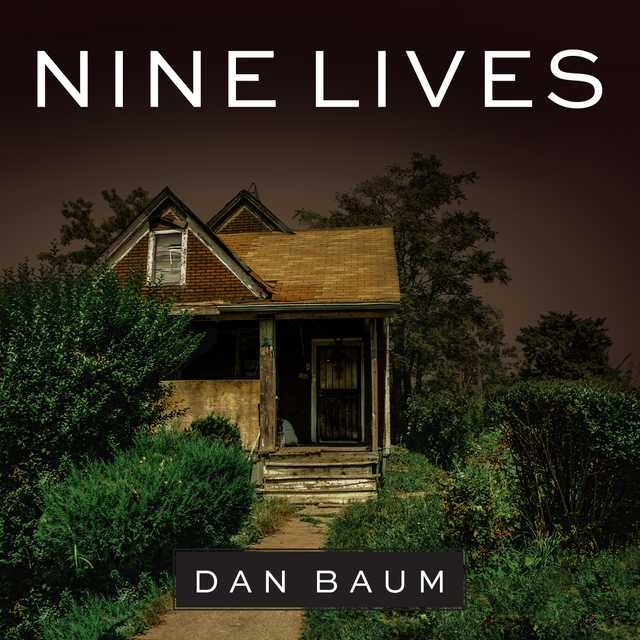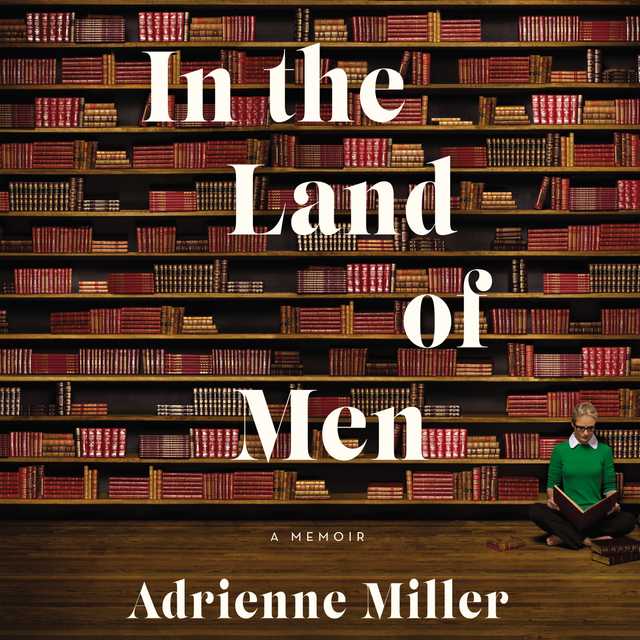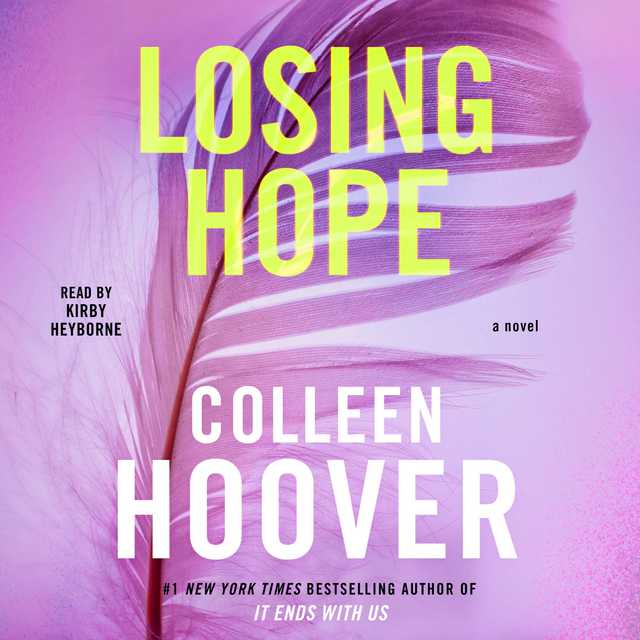The Divers’ Game Audiobook Summary
From the inimitable mind of award-winning author Jesse Ball, a novel about an unsettlingly familiar society that has renounced the concept of equality–and the devastating consequences of unmitigated power.
The old-fashioned struggle for fairness has finally been abandoned. It was a misguided endeavor. The world is divided into two groups, pats and quads. The pats may kill the quads as they like, and do. The quads have no recourse but to continue with their lives.
The Divers’ Game is a thinly veiled description of our society, an extreme case that demonstrates a truth: we must change or our world will collapse.
What is the effect of constant fear on a life, or on a culture? The Divers’ Game explores the consequences of violence through two festivals, and through the dramatic and excruciating examination of a woman’s final moments.
Brilliantly constructed and achingly tender, The Divers’ Game shatters the notion of common decency as the binding agent between individuals, forcing us to consider whether compassion is intrinsic to the human experience. With his signature empathy and ingenuity, Jesse Ball’s latest work solidifies his reputation as one of contemporary fiction‘s most mesmerizing talents.
Other Top Audiobooks
The Divers’ Game Audiobook Narrator
Devon Hales is the narrator of The Divers’ Game audiobook that was written by Jesse Ball
Jesse Ball is the author of fifteen books, and his works have been translated into more than a dozen languages. He is on the faculty at the School of the Art Institute of Chicago, a winner of The Paris Review’s Plimpton Prize for Fiction and the Gordon Burn Prize, and was long-listed for the National Book Award.
About the Author(s) of The Divers’ Game
Jesse Ball is the author of The Divers’ Game
More From the Same
- Author : Jesse Ball
- A Cure for Suicide
- Autoportrait
- How to Set a Fire and Why
- Census
- Publisher : HarperAudio
- Abraham
- American Gods [TV Tie-In]
- Dead Ringer
- House of Sand and Fog
- Prey
The Divers’ Game Full Details
| Narrator | Devon Hales |
| Length | 4 hours 11 minutes |
| Author | Jesse Ball |
| Category | |
| Publisher | HarperAudio |
| Release date | September 10, 2019 |
| ISBN | 9780062958099 |
Additional info
The publisher of the The Divers’ Game is HarperAudio. The imprint is HarperAudio. It is supplied by HarperAudio. The ISBN-13 is 9780062958099.
Global Availability
This book is only available in the United States.
Goodreads Reviews
Meike
September 12, 2019
If Jesse Ball's mind was an actual place, I'd love to travel there: I'm sure it would be spellbinding and full of weird surprises, riveting, strange and disturbing. No one writes about human cruelty and its consequences like this guy, and no one employs the enlightening power the perspective of a kid can provide - far away from any cheap kitsch - like the winner of last year's Gordon Burn Prize (for Census, a tribute to his dead brother). To write like this, you have to have deep moral convictions, a sprawling imagination and the talent to turn this into intense, affecting prose; as a reader, you need to be willing to put on your hiking boots and bring your compass in order to venture into the overgrown jungle at the heart of a remote narrative island, because Ball's books are no beach reads. "The Divers' Game" is a novel in three parts. In the first one, we meet two kids living in a dystopian society that openly accepts and cements inequality, justifying this with arguments that rely on fear, ignorance and ideas of superiority. The people living in the lawless quarters outside the city, most of them refugees, are declared to be less-than-human, and every kid is taught how to gas them if one of them crosses their path and disobeys or is perceived as somehow dangerous: It has no legal consequences to immobilize or even painfully kill them with gas (the people in the city are carrying gas and gas masks at all times). Together with their alcoholic teacher, the kids want to visit the zoo, and they are ultimately separated to experience two different areas where living/dead creatures are caged.In the second part, we meet kids living in Row House, one of the lawless "quads" outside the city, especially a young girl chosen to be the center of an enigmatic ritual that revolves around the limitless execution of personal power and the orgiastic experience of being part of a mob: "It was the cry of the punished that there should be more - more punishment - more cruelty - more hate. (...) the world was always so much that the revelers had to flinch away, had to retire from feeling, and feel not what was before them but instead what they had felt, what they might feel." This ritual mirrors another one in the first part of the book that is feared by the people in the city because it revolves around the establishment of equality: As you see, Ball is playing with reversals and trick mirrors - also watch out for a character named "Lambert Ma", who for some is a hero, for others a terrorist. In addition to that, we learn about the eponymous "divers' game" that the kids in the quad like to play. I won't explain the game in order not to spoil it, but I can say that it's about belonging and the dangerous attempt to overcome separation (pay attention that it only works in one direction!), thus being relevant to the whole book. The third part is a letter written by the teacher's wife shortly before her death, and it contemplates the price an individual soul might pay for being cruel and when "instead of fairness, there is just order and its consequences". What I love about Jesse Ball is how lyrical his prose is, his daring creative ideas and how he does not feel the need to destroy the power of his strong, haunting images by over-explaining them. Rather, he trusts in his readers' abilities to appreciate the sheer beauty of his art and the iridescent associations he evokes. This is a writer tackling very serious topics while proving that smart content and gorgeous writing can easily go together, and I hope he will go on winning some prizes for this stunning novel.
Dan
April 20, 2020
The Divers' Game is set in a future or alternative society in which refugees and other social outcasts are legally designated as subhuman. They are left to live in cordoned-off slums called quads, and if they enter the main city, citizens are permitted to gas them in order to stun them, knock them out, or kill them. The citizens all carry gas masks and colour-coded canisters. They are trained from an early age to don the mask and attack with speed. While refugees are considered non-human, most actual non-human animals, in this world, are extinct.Reading The Divers' Game is a truly unique experience. The most similar thing I can think of is Nicola Barker's excellent H(A)PPY (https://www.goodreads.com/en/book/sho...). At times the novel feels more like a network of symbols and open-ended metaphors than a narrative. The prose skips along with the frenetic and ever-shifting energy of children playing, and for the most part it sticks closely to the perspectives of children. Across four sections, we follow two children from mainstream society; a young girl who has been made the primary performer in a wild festival in one of the worst-reputed quads; a boy who is being chastised by adults after his friend, the son of a quad kingpin, goes missing; and a grown woman who... well, I will leave that for you to discover.By introducing us to this dystopia through the eyes of children, Ball reflects how our own societies accustom us to their own inequalities and cruelties - and how we become active participants from a young age. I think one of the questions he wants to ask in this book is: To what extent can one ever excuse cruelty with innocence? There are countless examples in The Divers' Game of the line between innocence and cruelty, ignorance and malice being blurred - both among the citizens and outsiders. One example comes in the first part of a section entitled "The Day of the Infanta". A young girl, Lessen, becomes the "Infanta", the central figure of the section's namesake festival. She is put in a dress of "apple-red brocade, and larger than any dress she had worn." She is given an army of 'chimney sweeps' (men with brooms). And she is repeatedly reminded "that you have to be careful what you say because everyone will obey you." Just like that, she is given enormous power over everyone in the quad. She immediately begins to fantasise: "I can make them do anything. What should I make them do? She thought about her sister, who was often very mean to her. The day before, when she had been chosen Infanta, her sister had hit her as hard as she could, right in front of the visitors... If Lessen told her chimney sweets to pull off her sister's legs, what would happen? She imagined her sister screaming and trying to run away, and being caught, and lifted up... She could also have the chimney sweeps find her father's shift boss and tear off his legs. Now, that might be a thing to do. He was always keeping her father late and not letting him go home. Maybe he would be a better shift boss without legs."Much of the cruelty of the young citizens appears to come from their indoctrination into principles a cruel society. As for Lessen, in the quads, her cruelty is merely a mirror of the cruelties and injustices she sees around her. We see her undergo a transformation that she can observe but can't understand. We get hints, later on, of how her power develops and its consequence for the quad, but we don't get a full image, which brings me to what is, in my opinion, one of the The Divers' Game's main flaws. The four main sections are thematically linked, and we do see characters return. Ball does a brilliant job of allowing us to slowly stitch together a vision of this strange society, understanding its laws, divisions, and jargon, and there are enough anecdotes, observations, parables, and ideas for his story to have a moral impact, to allow us to make comparisons to our own societies, past, present, and potential. He leaves a lot to the imagination with respect to the world itself, which we have to put together piecemeal, and that is one of things that makes the experience so rich.At the same time, it feels almost as though we are forced to leave each section on cliffhangers that we would rather like to see resolved. It is clearly a deliberate choice by Ball to create space between the sections and allow us draw our own conclusions. Still, I felt dissatisfied: There were more stories to be told, and I wanted to read them! I would have loved to see more interaction between the various characters we meet.I'll end the review with a quote from the book that captures some of the clever ways in which Ball talks about his extreme dystopia while putting a difficult probe on our own and others. After two young citizens encounter a man from the quads, one of them justifies the present social arrangement as if it was in the interest of the refugees and outcasts: "In [the quads]," she says, "it's safer for them because no one can gas them. Except for the guards. Out here anything that happens to them is fine. They have to be on their toes - all the time. You know that." The narrator, representing society, goes on:"The girls' behaviour - does it seem cruel? You have to understand, it isn't cruel so much as natural. What is natural must be respected, must be wallowed in. Isn't it so?"Why should they bother to care about someone so inferior? It makes perfect sense that service of every kind should be given by those who can provide it. Those who are ridiculous bear ridicule. Those who are beneath notice are not noticed, and those who are elect are raised up."As much as we like to think there can be fairness, it is really a foolish idea, one we ought to have done away with long ago. Instead of fairness, there is just order and its consequences."
Paul
September 19, 2019
The Divers' Game is the latest novel from Jesse Ball, the 4th of his I have read, and someone who is fast emerging as one of our most interesting modern-day writers. It looks like it’s about a very violent society that pretends it isn’t violent at all.It smells like licorice left in a hole.Source: A hyena who searched Jesse Ball's house in 2018 and found the draft of this novel(https://therumpus.net/2018/03/the-rum...)He said, we can welcome them, as long as we can tell them apart. As long as we can tell them apart. Many of them, wherever they were from, they had red hats, a kind of long knit hat, a red hat, no one remembers why, and so Garing said, This will be their symbol. We’ll tattoo the red hat on their cheeks, and then we’ll know who is who. Then we can welcome them.This novel gives us a a dystopian set-up but one that draws, as Graham's review (https://www.goodreads.com/review/show...) points out, on Nazi-era ghettos, with immigrants (and increasingly also criminals) in theory, allowed to live in the host country, but in practice physically branded, and legally non-persons, such that violence towards them from ordinary citizens is not considered legally, and increasingly not even morally, wrong:Our morality is what we do. Do you all understand that? But if what we do ceases to be violence , let us say it is the same, but it is no longer violence: then we are not violent; we are no longer doers of violence.Despite the more historical set-up this reference to the pernicious effect of normalisation of behaviour is highly pertinent to our times (gun crime in the US would be one parallel). And in fact the author himself argues that to see this as a dystopia is to misread it (interview from Paris Review linked below)I don’t believe it is a dystopia. Dystopian novels are pleasant distractions for the beach, for the most part, with lithe protagonists and evil. This is not that at all. Instead it is a short speech about violence—real violence that I have observed in the past forty-one years. It is a parable about that; it’s a parable but there is no lesson.The initial set-up is (over-)explained in a rather clunky set-up, literally in a lecture. But the novel comes in to its own after the characters escape the lecture hall and we experience other key elements of the society, both the rather terrifying Day of the Infanta amongst the non-people, and amongst the citizens, Ogias' Day, declared, seemingly at very short notice only a fee days earlier, for the first time in over 50 years, a sort of comprehensive Jubilee, although no-one quite seems to know what will happen:He said he heard on the last Ogias’ Day a lot of people died. Everything turns upside down. Freedom surprises people—they don’t know what to do with it. People who have been paying back debts for decades—and then the debt is just gone! It makes them crazy, especially if they know other people who did fuck all with their debts. And everyone’s in the same boat? What is that? You could see why people would be mad. Are you saying you think it’s a bad idea? No, no. I mean, I owe some. I’ve run it up pretty badly. You know, this job doesn’t pay much. I’m glad for it to stop. I don’t owe anything, she said. I still live at home ... I heard, she said, that it isn’t just debt. It’s all bonds. So after tomorrow, no one is married. You’d have to get remarried. You have to reacquire your job. Everything’s started over. It’s a complete restart. They have to explain all this. That’s why everyone has to go to the announcement points. Can’t be true. I never heard any of that. My brother says, he says Ogias’ Day isn’t for us anyway. It’s more for people like you, people who own things. It’s a holiday to keep you owning the things you own.(interesting parallels to the political discussion on both sides of the Atlantic about writing off student debt, but also to whether radical reform is really about the preservation of the existing system)The last section gives the novel a powerful close as we get the suicide note of the lecturer's wife (we learned in the first section that she killed herself using the gas citizens are given to defend themselves against non-persons), her actions triggered by what she, and her society, had become: There is a permanent sickness in my stomach. It is a revulsion and it is a disgust, and it is a disgust at who I am and have been— who you are— who we are together— who everyone together becomes in this day and age.Recommended (although not Ball's best work) - and how The Wall made the Booker longlist, and this didn't is a mystery (but then how The Wall made the Booker longlist is a mystery in any case). 3.5 stars as it isn't Ball's strongest work and readers would be better starting elsewhere.And there is a wonderful interview here between two of my favourite writers - Ball and the brilliant Patty Yumi Cottrell:https://www.theparisreview.org/blog/2...Thanks to the publisher via Netgalley for the ARC.
Jennifer
September 21, 2019
Thought provoking and in your face. Jesse Ball is everything 🖤“What kind of suicide is it to kill in the world what you find in yourself?”
Gumble's Yard - Golden Reviewer
August 23, 2019
Dive down. You just dive down and find the hole, then it starts. I mean you crawl. For one pond to the other. The divers’ game. the part where you pull yourself into the hole is the worst. Because from there you just have to go on. You have to trust that the tunnel’s the same [as it was last time] This book tends to be reviewed as set in a near-future dystopia, one which imagines a societal approach to mass immigration (and to undesirables) that seems only a logical extension of current trends. I would add though that it is really also a very lightly imagined variation on past practices – and lacks the real imagination of say an Exit West, even John Lanchester’s “The Wall” (to which book it is in every other way superior and whose Booker longlisting looks even more bizarre if one assumes that this book was eligible and submitted).Ball imagines a country which deals with mass immigration by admitting them marking them with a tattoo of a red hat to make their status as legal non-persons – a legal status change which became enforced as a philosophical one: that violence perpetuated on the refugees was not just not illegal but was not even immoral. In time the refugees were also marked by amputation of their thumbs, and given special areas (quadrants) outside of cities where they had a degree of safety (in that citizens too forfeited their rights in what was deemed a pre-civilised space. Outside these guarded areas the citizens (Pats) are drilled in the deployment of gas masks and the use of poisonous gases to protect themselves against the dehumanised refugees (Quads). Over time the Quads are used to house other undesirables – in particular criminals and the Quads themselves have rough justice enforced by bosses who have reached an understanding with the guards.Immediately one set of rather obvious historical parallels are clear: yellow stars, non-persons (https://en.wikipedia.org/wiki/Nonperson – “"Nonperson" status was required because it removed the moral and social obstacles for committing otherwise objectionable acts of violence, crime, abuse, and murder), ghettos, Kapos.The book has a shaky start – the above information is rather clunkily covered by a rhetorical revision lecture on the history of immigration given by Professor Mandred and attended by two citizen girls – Lois and Lethe. Luckily I was able to follow the principles of the Divers Game., I assumed that this was the worst part of the book and trusting that Ball’s writing abilities would be the same as in his last book, I was able to go on. The remainder of the first part follows Lois and (particularly) Lethe on a trip with the Professor to a zoo – to see the last remaining animals in the country. We witness the arbitrary way in which they all treat the Quads they encounter and the Zoo itself is full of symbolism – with a divide between dead and living animals, with the almost eradication of animals a reminder of their cruel and arbitrary treatment (often neither considered illegal or immoral) in our society. Later Lethe is accosted but unharmed by a group of Quad children near some lakes. The society is approaching Ogias’ Day – a Jubilee style day where things are turned upside down and which is therefore unsettling to a society with the creed A world of tiers. Know your place upon itBy looking down The second part is set in a particularly rough Quad – and is largely based around a raucous festival there – the Day of the Infanta – where a small child is chosen, given the power to issue orders obeyed without question and required to administer arbitrary justice in a series of real as well as symbolic cases, before being herself subject to the judgement of the mob. In contrast to the unsettling effect of Ogias’s Day – this day is greeted wildly by Quads, allowing them to enact their frustration at their status and the cruel justice to which they are normally subject. Within this part we learn that the son of the Quad boss has disappeared – we later find playing the Divers’ Game, a seeming analogy for the courage required to travel between two otherwise separate socieites (as well as a link to an incident in the first part).Both the post-lecture first part and the second part are written in the wonderful style I recognise from Ball’s previous novel “Census” – sparse and yet full of imagery, enigmatic and yet full of meaning.The third part is another change of style to a rather preachy style in which Ball’s character makes sure we have understood the moral of the book: that in dehumanising others we dehumanise ourselves. It is told in a series of short letters from a Pat woman (one we already know) to her husband – feeling threatened by a Quad she killed him with gas – and immediately cannot come to terms with her actions and contemplates suicide. OR PERHAPS THEY DO KNOW WHY. MY REVULSION AT this place of our lives—this society of which we are a part—seems not to immediately admit an obvious truth: the people who are ground to bits by our horrific thoughtlessness, selfishness, greed, though they may not know in each case why it has happened, they do not need to know. These things have happened so often that it becomes clear: a man like this did not die because of what he did but because of what he was. We are the ones who have the privilege of having things happen to us because of what we do. Not everyone is so lucky. Overall this book – while barely more than a novella and easily read in a single sitting is a quietly powerful and affecting plea to examine what the exclusion of the other is doing to the moral fabric of our societies. One final remark – I am sure it must be a coincidence but as Ball’s last book “Census” was very similar in subject matter and style to China Mieville’s “The Census Taker”, this book in underlying subject matter (but not in any way style) shares a lot with “The City and The City”. Mieville is I think by far the most imaginative and versatile of the two writers, but the use he makes of his versatility (in writing books in varying genre styles – a police procedural in “The City and The City”) renders Ball’s the better read in this case.My thanks to Granta for an ARC via NetGalley.
Ilana
November 30, 2019
Heartbreaking. Sublime. Gut wrenching. I’m too gutted and mentally exhausted right now to do an adequate job of describe this short novel which packs such a strong message, but I’ll just go with it and see what comes out. It’s about a supposedly dystopian future, but is really like stepping into a mirror that only slightly distorts our own current reality. This «future» where equality has been declared unviable and immigrants are only accepted if they are willing to live as non-persons (called «quads» for reasons which are explained) stripped of any rights and be branded as such. Their lives and safety in the hands of any passing citizen, and from early childhood every real person taught their rightful place and the proper use of apparatus to neutralize any «quad» perceived as a threat permanently and with complete impunity, as language has been reshuffled so as to interpret these actions not as violence, but as the maintenance of the proper order of things. There distinct parts form the novel, interconnected, but showing different aspects of how this radical imbalance of power paired with brutal violence plays out in this «future society».And one woman, trained all her life to accept this reality and her superior position within this society, is driven to suicide when she one day does take a life when she feels threatened by a quad. She reveals in her suicide note that in her final gesture, there still lives a real spark of compassion for those who were born less fortunate, and an unbreakable moral spirit. I believe we all recognize ourselves in her. I broke down and cried warm tears. We who have empathy find these harsh times unbearably difficult to navigate through. I’m not doing this novel any justice but that’s what’s coming out for now and I honestly am not able to think very clearly. I read an excellent review that led me to pick up this book which I will provide the link to when I come back to edit later. Completely drained and needing a rest for now.
Jessica
April 22, 2019
I have attempted a couple of times to read a Jesse Ball book, waiting for the one that was right for me. Ball is not exactly my perfect fit, he's more of a literary impressionist while I tend to stick to more realism. With THE DIVERS' GAME I was able to get engrossed in the world Ball created quickly. And even though it isn't my perfect fit as a plot person, I really enjoyed the look into the dark world he's created.There are a lot of ways to mess up a dystopian novel, but it turns out Ball's style is well suited to it. He avoids a lot of the problems and pitfalls of creating a society that never seems real. There are images from this story that will not leave my brain any time soon. Ball jumps around in this book, moving to different parts of the world, leaving stories unfinished, giving you more of a feeling than a strict structure, and it works well. The basic elements of this world are introduced in some detail, though other pieces are mysterious even to the people living in it. We spend much of the book following young characters who do not fully comprehend the world they live in, who can be callous about its horrors because it is all they have known. The naivete and openness of children and young people makes THE DIVERS' GAME all the more gut-punching when it delivers its hits (which are plentiful).While plot people like me may find this book unsatisfying because it doesn't give you those typical beats, I still recommend it for its dark vision. It's good to break out of your comfort zone sometimes and this is a worthwhile venture out into the unusual.
Jill
August 09, 2019
Jesse Ball is a marvel of a writer. Each book of his that I’ve read – The Curfew, Silence Once Begun, A Cure for Suicide, How to Set a Fire and Why – has been inventive, imaginative, and often, transformative. So it is small wonder that I wanted to be an early reader for this, his latest.Certainly these dark and unsettling times have informed this dystopian novel, in which the world is divided into two groups: quads and pats. The pats are the privileged country natives and the quads are the refugees, who are branded and have their dominant thumb removed. Pats must carry gas masks and canisters at all times, to kill the quads if they feel threatened—without fear of retribution.A sense of menace pervades each section of the novel. In the first, two young pats end up with their teacher at a zoo in which all the animals (save one) are dead. The focus then switches to quad festival called Infanta, where an anointed child is given god-like powers to judge those who approach her float with a guilty or an innocent verdict before mayhem ensues.Ball then switches again to a more allegorical setting, in the next section, the divers’ game, a risky place where children struggle to overcome their destiny. Jesse Ball writes, “It’s hard to believe, but the two ponds connect. I’m telling you they connect—under the ground. So we call the tunnel between them the divers’ game. It’s rough, by the time you get along it our eyes star up. I mean you’re all dizzy and seeing lights, and then you have to go mad, you have to brutalize and just kick and kick and use it all and then you end up on the surface.” It’s society at its worst, where children pressure each other and only the strong survive.Finally, the last part introduces a pat woman who has just killed a quad and is actually feeling remorse: “a man like this did not die because of what he was.” Sometimes grotesque, often thought-provoking and eerie, Jesse Ball’s latest presents a mirror of the outer reaches of a society that we may be fast becoming. Thank you to @HarperCollins for the privilege of receiving an advance copy in exchange for an honest review.
Bram
September 06, 2019
Jesse Ball can do no wrong and here he out Attwoods Attwood with a terrifyingly plausible take on an alternative present. For fans, think of it as a companion of sorts to The Curfew.
Robert
January 30, 2020
Although I’m not really one to compare, I can’t helping thinking that Jesse Ball is the U.S. equivalent of Ali Smith; both have sparse prose, are prolific, both approach text in a playful manner and focus on serious topics. True Ali Smith stuffs as many cultural references as she can in her work but I do think that there are similarities.This time round Ball creates a dystopic future where immigrants are branded and can be killed, there’s a sort of caste system, bizarre rituals and games.The book is divided into roughly four parts. The first part consists of two girls and their professor first attending a lecture on how the creation of a branded immigrant class and then going to a zoo (all animals but one are stuffed) .One of the girls runs off and encounters the poorer people in her section of town. At the same time the village is preparing for Orgias day, a celebration in where debts are dropped. I saw this section as a commentary on immigration laws, extreme social classes and the affects of ‘progress’The second and third are combined. One part is about a ritual where a girl can decide the fates of the town she lives in and the other section involves a group of boys playing the titular divers’ game.The book concludes by tying everything together via a letter from the professor’s wife talking about the cruelties of this world.Other than the ‘this could happen to you’ (although things like this have happened in the past) scenarios. What else is Ball trying to say in this brief novel? Is The Divers’ Game about the loss of innocence (a theme also explored in his last novel, Census)? All the children in the book carry out punishments of some type or act in an unforgiving manner. Does this signify that future generations are going to worsen? The last section itself is about death – is that the only escape? Jesse Ball’s novels are open to many interpretations.Once again Jesse Ball has written a novel to ponder, dissect and pull apart. Due to the eclectic nature of his books, I tend to look ahead and wonder what his next move will be.Many thanks to Granta for providing a requested copy of The divers’ Circle in exchange for an honest review.
Jessica
May 01, 2019
There is no contemporary author quite like Jesse Ball.
Frequently asked questions
Listening to audiobooks not only easy, it is also very convenient. You can listen to audiobooks on almost every device. From your laptop to your smart phone or even a smart speaker like Apple HomePod or even Alexa. Here’s how you can get started listening to audiobooks.
- 1. Download your favorite audiobook app such as Speechify.
- 2. Sign up for an account.
- 3. Browse the library for the best audiobooks and select the first one for free
- 4. Download the audiobook file to your device
- 5. Open the Speechify audiobook app and select the audiobook you want to listen to.
- 6. Adjust the playback speed and other settings to your preference.
- 7. Press play and enjoy!
While you can listen to the bestsellers on almost any device, and preferences may vary, generally smart phones are offer the most convenience factor. You could be working out, grocery shopping, or even watching your dog in the dog park on a Saturday morning.
However, most audiobook apps work across multiple devices so you can pick up that riveting new Stephen King book you started at the dog park, back on your laptop when you get back home.
Speechify is one of the best apps for audiobooks. The pricing structure is the most competitive in the market and the app is easy to use. It features the best sellers and award winning authors. Listen to your favorite books or discover new ones and listen to real voice actors read to you. Getting started is easy, the first book is free.
Research showcasing the brain health benefits of reading on a regular basis is wide-ranging and undeniable. However, research comparing the benefits of reading vs listening is much more sparse. According to professor of psychology and author Dr. Kristen Willeumier, though, there is good reason to believe that the reading experience provided by audiobooks offers many of the same brain benefits as reading a physical book.
Audiobooks are recordings of books that are read aloud by a professional voice actor. The recordings are typically available for purchase and download in digital formats such as MP3, WMA, or AAC. They can also be streamed from online services like Speechify, Audible, AppleBooks, or Spotify.
You simply download the app onto your smart phone, create your account, and in Speechify, you can choose your first book, from our vast library of best-sellers and classics, to read for free.
Audiobooks, like real books can add up over time. Here’s where you can listen to audiobooks for free. Speechify let’s you read your first best seller for free. Apart from that, we have a vast selection of free audiobooks that you can enjoy. Get the same rich experience no matter if the book was free or not.
It depends. Yes, there are free audiobooks and paid audiobooks. Speechify offers a blend of both!
It varies. The easiest way depends on a few things. The app and service you use, which device, and platform. Speechify is the easiest way to listen to audiobooks. Downloading the app is quick. It is not a large app and does not eat up space on your iPhone or Android device.
Listening to audiobooks on your smart phone, with Speechify, is the easiest way to listen to audiobooks.

